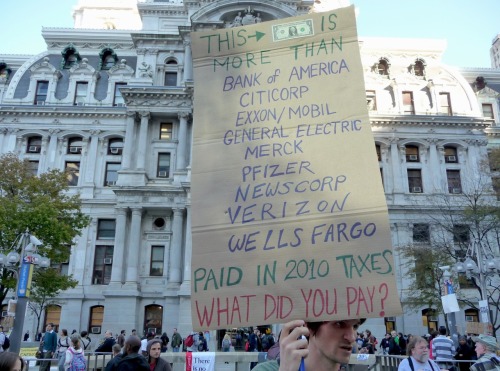Here is the opening of
Jenice Armstrong's column in today's Daily News: "IF PROFESSIONAL women really want to get ahead, then they have to stop acting like bitches."
No really. It gets better from there.
To be fair, this isn't Armstrong speaking for herself. Instead, she's quoting Susan Tose Spencer, former vice president of the Eagles—her father owned the team—who has a new book full of advice for business women. Like: Use your "feminine wiles" to your advantage. But don't complain about sexual harassment! That's whining! The best thing to do is just ... add more sexiness to be harassed. At least that seems to be the lesson here:
In her book, she shares an anecdote about the time she ran into a problem with her biggest customer's male buyer. He was the touchy-feely type and kept reaching for her leg under the restaurant table. (If it had been me, I would have had that loser's hand twisted up behind his back and slammed his face up against the tables. But then again, I'm just a wage slave, and Spencer couldn't afford to alienate the guy.)
So, she writes, the next time she met him for dinner, Spencer brought a beautiful female colleague with her. She and the other woman made a point of sitting on either side of the buyer, so he had to turn his head and look from one to the other. The distraction kept him from playing grab-a-leg, enabling Spencer to keep his business and her own virtue.
"You can't embarrass the male ego. Once you embarrass them, you make an enemy," Spencer warned.
Ick. You notice the burden here isn't on the man to avoid getting handsy because he might make an enemy of a well-connected businesswoman. Just: Ick.
But get back to the whole "bitch" thing. Spencer's contention is that women get the label because they deserve it: "You know they're always called bitches. Well, why? Because they act like them. Think about it. They kind of try to sabotage a guy. Or they'll talk behind his back."
Here's the problem: A successful woman will always—
always—have the bitch label affixed to her at somewhere along the way.
We all know this. I bet Spencer has been called it a time or two. Or three. My workplace experience is that women are no more or less likely to do the sometimes-ugly work of getting ahead. But when they do, it's the b-word for them. And men aren't held to the same standard: Steve Jobs was famously hurtful to his employees at times, yet the last week of hagiography-eulogizing has somehow mitigated that quality—or turned it into an advantage: He was just trying to make the product better! And maybe that's so. But is there any doubt that a Susan Jobs would've been seen much, much differently?
Spencer's journey, too, is shaped by the fact that she had access to the top rungs of the corporate ladder by virtue of her lineage. Would she have been vice president for the Eagles in the 1980s if her father hadn't owned the operation? Maybe ... but doubtful. It's pretty easy to dispense advice on taking third base if you were born there—and easy to be all sugar and charm if you didn't have to fight your way to the top. I'm not sure Spencer's advice is all that helpful to real women—or that Armstrong's amplification of it is all that helpful to Philadelphia.
